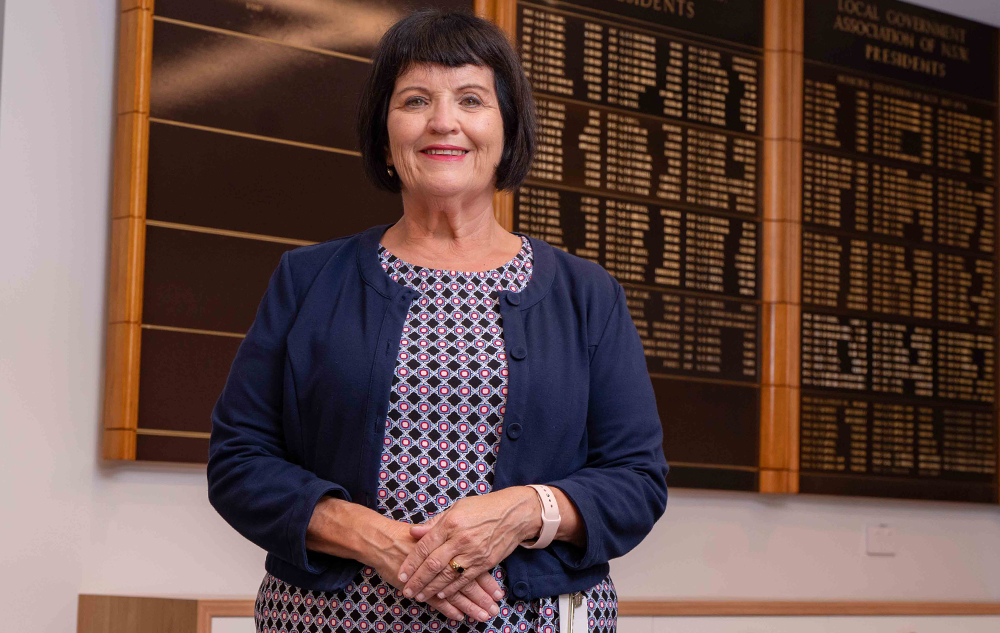
31 March 2022
There’s a lot to get through in this Federal Budget edition of The Weekly, but first up I want to welcome the much-needed additional $1 billion for flood-affected local government areas in NSW through the Disaster Recovery Funding Arrangements (DRFA).
Another $3 billion is set aside in forward estimates for flood-affected LGAs in NSW and Queensland; a timely recognition that the road to recovery is a long and difficult one.
According to the Budget papers, the additional funding will be accompanied by other “as yet unquantifiable support” through DRFA for the rebuilding of essential public infrastructure damaged by floods. Some $150 million in new funding from the Emergency Response Fund for recovery and post-disaster resilience in the Northern Rivers region of NSW is equally critical, particularly as we see already traumatised communities impacted by further floods.
Other Budget announcements included:
- a $500 million extension of the Local Roads and Community Infrastructure Program
- $491 million in Roads to Recovery Funding
- $131 million for the Bridges Renewal Program; and
- $818 million over five years for expanding digital mobile coverage in regional Australia.
We are also celebrating the $665.9 million committed over four years for an additional 16,500 humanitarian places for Afghan nationals – a commitment in line with Lake Macquarie’s successful Special Conference motion to streamline and provide support for Afghan refugees to resettle in Australia.
Councils are a key contributor to refugee resettlement in our communities and we will continue to advocate for councils to be supported in this role.
Missed Opportunity for Financial Assistance Grants
On the downside, the Budget was yet another missed opportunity for the Commonwealth to restore Financial Assistance Grants to at least one per cent of Commonwealth taxation revenue.
- In 2022-23 the Australian Government will provide $2.8b in Financial Assistance Grants funding, an estimated 0.55% of the tax take (and down from 0.6% in 2021-22). This includes $2.1 billion, which will be brought forward from the 2022-23 estimate and paid to State and Territory Governments in 2021-22, which may assist councils with cash flow.
Independent analysis shows increasing Financial Assistance Grants to at least one per cent of Commonwealth taxation revenue would create 16,000 jobs and add about $2.37 billion a year to Australia’s GDP.
Financial Assistance Grants are particularly important and valuable to councils, as the funding is untied and can be spent in areas where it is most needed.
This means having the chance to upgrade local infrastructure, invest in our workforces, support local businesses, or better prepare our communities for the increasingly recurrent and severe national disasters we have been seeing.
Restoring Financial Assistance Grants is one of the key asks of our sector’s pre-election advocacy campaign, Don’t Leave Local Communities Behind. Many of you have already passed motions of support for the campaign and I’d urge you to continue that support via your communication channels using a range of materials and assets developed by our national peak body.
Greater Cities Commission Bill
No doubt those of you in the regions adjoining Greater Sydney to the north and south – Central Coast, Lower Hunter and Illawarra-Shoalhaven – have been keenly awaiting further news of the Premier’s new "6-Cities vision".
The Greater Cities Commission Bill passed the NSW Parliament this week, with bipartisan support. A notable – and disturbing – addition is the introduction of a new legislative requirement for District Plans to include 10 and 20-year housing targets by local government areas.
The latest legislation follows:
- a proposed new "planning guarantee" requiring councils to refund rezoning application fees if they do not meet timelines arbitrarily imposed by the State Government
- the scrapping of nine sustainable planning principles that would require the planning department, developers and councils to consider, among other things, risks of floods and fires before building new homes
- a proposal to reduce consultation times and give developers control and responsibility for rezoning requests.
Yet again we are seeing significant moves likely to further erode councils' roles in local strategic planning and, in particular, the role of democratically elected councillors in ensuring communities have a say in the future of their neighbourhoods.
It’s becoming increasingly hard to see anything other than an emerging pattern of contempt for local councils and their communities, with a free-for-all on offer for developers. It is especially disappointing given the NSW Government’s commitment in our Intergovernmental Agreement to consult and seek the views of local government in advance of introducing any laws or policy initiatives that will impact the sector.
Rest assured that council planning powers and the voice of our communities is a key LGNSW advocacy priority and will continue to be pursued vigorously throughout the 12 months now standing between us and the next NSW State election. I very much look forward to briefing you on further advocacy action in the very near future.
Upcoming Events
Personal and Executive Assistants are the unsung heroes of local government and a vital link between councils and the communities they serve.
Our upcoming Executive and Personal Assistants Conference, at Sydney’s Swissotel Hotel from 9-10 June, recognises the vital role EAs and PAs play with a professional development program designed to help delegates further fulfil their potential and achieve new standards of performance.
LGNSW members have access to pre-sale tickets until 7 April, so if you think this conference could benefit you or a colleague, don’t delay: lock-in attendance at the significantly lower members-only presale rate.
Hear from past Conference delegates in this short video summary.
BACK TO MAIN PAGE